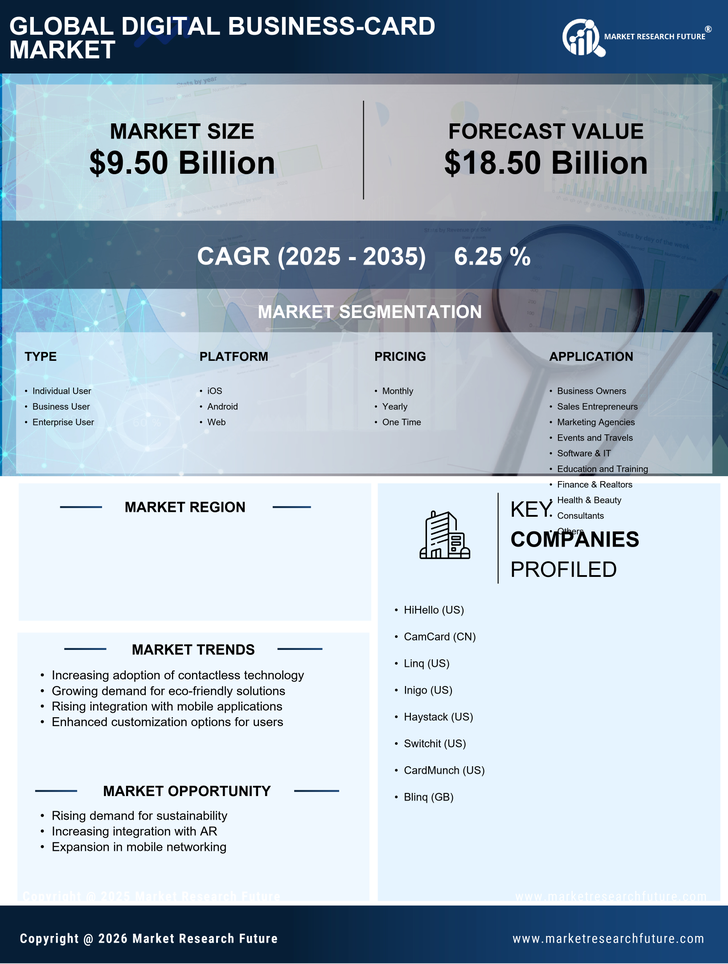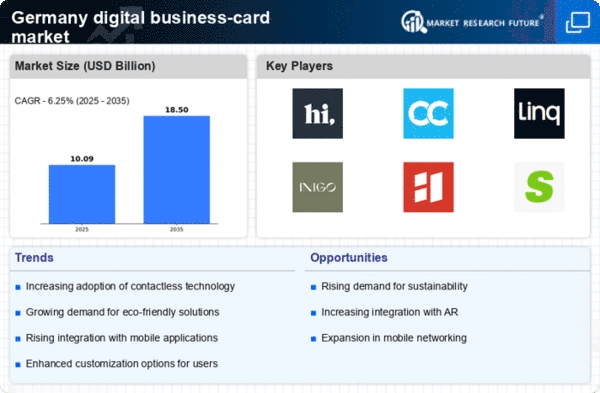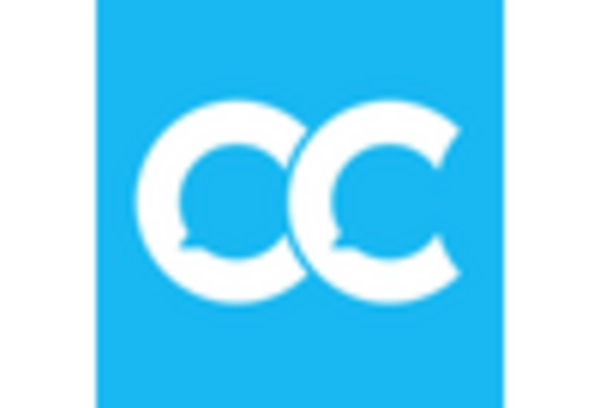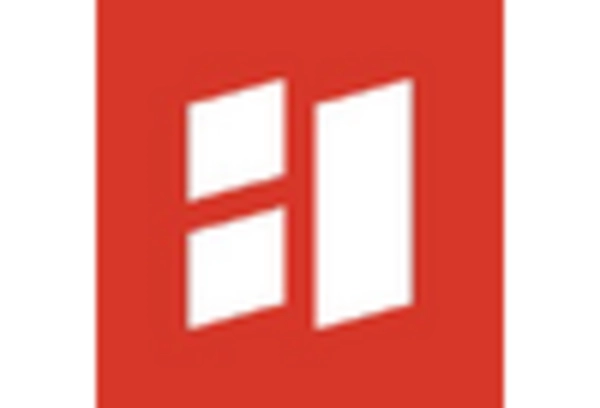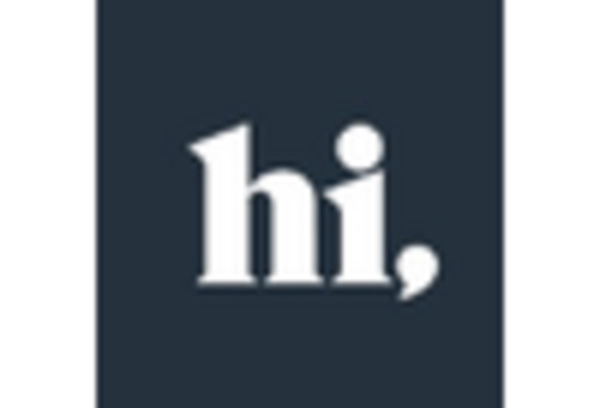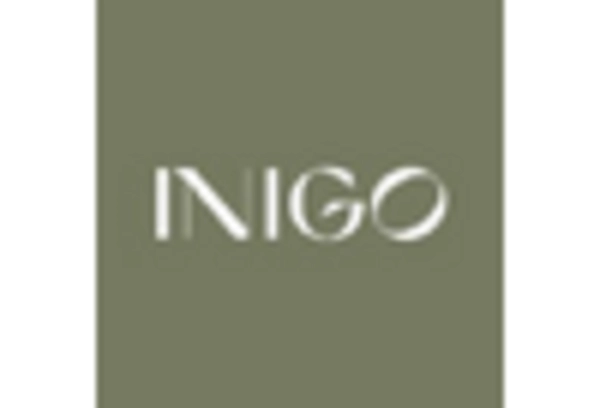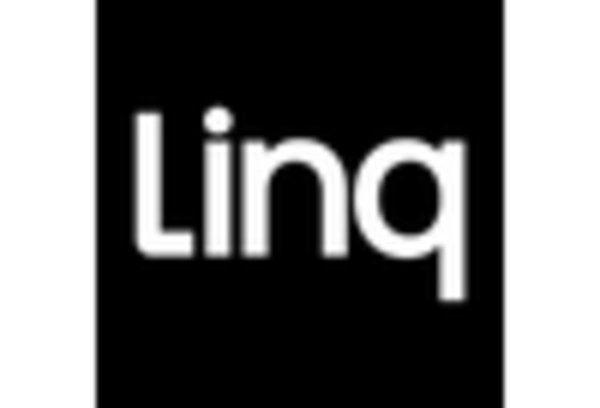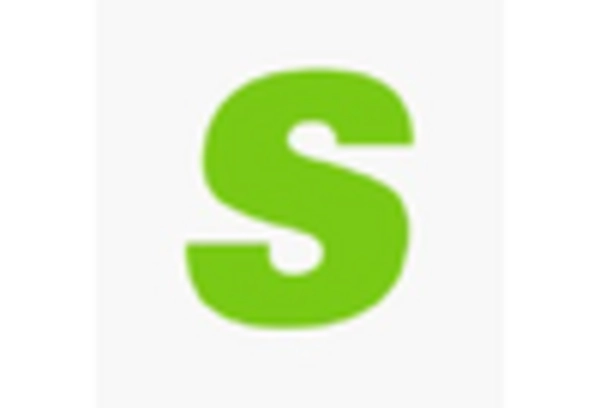The digital business-card market in Germany is characterized by a dynamic competitive landscape, driven by technological advancements and evolving consumer preferences. Key players such as HiHello (US), Linq (US), and CamCard (CN) are actively shaping the market through innovative solutions and strategic partnerships. HiHello (US) has positioned itself as a leader in user-friendly digital solutions, focusing on seamless integration with existing contact management systems. Meanwhile, Linq (US) emphasizes customization and user engagement, leveraging data analytics to enhance user experience. CamCard (CN), on the other hand, has adopted a strategy of regional expansion, targeting small and medium-sized enterprises (SMEs) in Germany, thereby diversifying its customer base and enhancing market penetration.
The business tactics employed by these companies reflect a moderately fragmented market structure, where localized strategies and supply chain optimization play crucial roles. Companies are increasingly localizing their offerings to cater to the unique preferences of German consumers, which may involve adapting features and functionalities to align with local business practices. This localized approach, combined with strategic partnerships, allows these firms to enhance their competitive positioning and respond effectively to market demands.
In October 2025, HiHello (US) announced a partnership with a leading CRM provider to enhance its digital business-card platform. This collaboration is expected to streamline user experience by integrating contact management features directly into the HiHello app, thereby increasing user retention and engagement. Such strategic moves indicate a focus on creating a comprehensive ecosystem that supports users in managing their professional networks more effectively.
In September 2025, Linq (US) launched a new feature that allows users to create personalized landing pages linked to their digital business cards. This innovation not only enhances user engagement but also provides businesses with a platform to showcase their services and products. The introduction of this feature suggests a shift towards more interactive and engaging digital experiences, which could potentially attract a broader audience.
In August 2025, CamCard (CN) expanded its operations in Germany by launching a localized version of its app tailored to the German market. This strategic move aims to address the specific needs of German users, such as compliance with local data protection regulations. By adapting its offerings, CamCard (CN) demonstrates a commitment to understanding and meeting the unique demands of the market, which may enhance its competitive edge.
As of November 2025, the competitive trends in the digital business-card market are increasingly defined by digitalization, sustainability, and the integration of AI technologies. Companies are forming strategic alliances to leverage complementary strengths, thereby enhancing their market presence. The shift from price-based competition to a focus on innovation and technology is evident, as firms seek to differentiate themselves through unique features and reliable supply chains. Looking ahead, it appears that competitive differentiation will increasingly hinge on the ability to innovate and adapt to changing consumer expectations, rather than merely competing on price.
